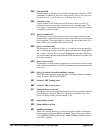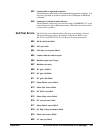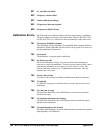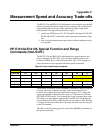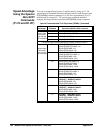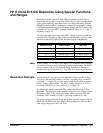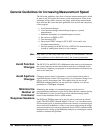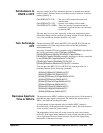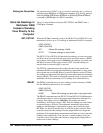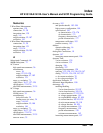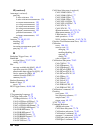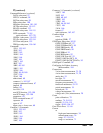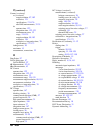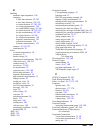
196 Measurement Speed and Accuracy Trade-offs Appendix C
General Guidelines for Increasing Measurement Speed
The following guidelines show how to increase measurement speed, which
in some cases, will reduce the accuracy of the measurement. Some of the
guidelines will not affect accuracy but simply make taking measurements
more efficient. Be aware that these guidelines also increase the complexity
of the program.
1. Avoid function changes.
2. Avoid aperture changes when making frequency or period
measurements.
3. Minimize the number of command/response sessions.
4. Set autozero to
ONCE or OFF.
5. Turn autorange
OFF.
6. Decrease the NPLC setting for DCV, DCI, 2-wire and 4-wire
resistance measurements.
7. Store the readings in the HP E1312A or HP E1412A internal memory
instead of sending them directly to the computer.
Note Only items 4, 5 and 6 may reduce the accuracy of a measurement. The rest
of the guidelines involve additional work by the system programmers.
Avoid Function
Changes
The HP E1312A and HP E1412A Multimeter takes time to switch between
the various functions because the hardware must be re-configured for the
new function. Organize your program so all measurements on a function are
done at the same time.
Avoid Aperture
Changes
Changing aperture times for frequency or period measurements takes a
significant amount of time. The easiest way to avoid aperture changes is to
directly specify the aperture time. This requires that you not use the
MEASure command and that you not specify the optional <resolution>
parameter in a
CONFigure command.
Minimize the
Number of
Command/
Response Sessions
Minimizing the number of command/response sessions involves
programming the multimeter to pace itself, rather than the computer pacing
the multimeter. Use the external trigger mode when measuring signals
routed to the multimeter from a switch module.
The
EXTernal TRIGger input can be used to start a scan from an external
signal. The HP E1406 Command Module “Clk out” is a convenient source
for an external signal. A potential problem exists whereby an external trigger
arrives before the multimeter is ready to start a new scan causing the trigger
to be missed and no error message generated. Send a
*OPC? command to the
multimeter after setting up the multimeter and prior to initiating the switch
module to eliminate this problem.



